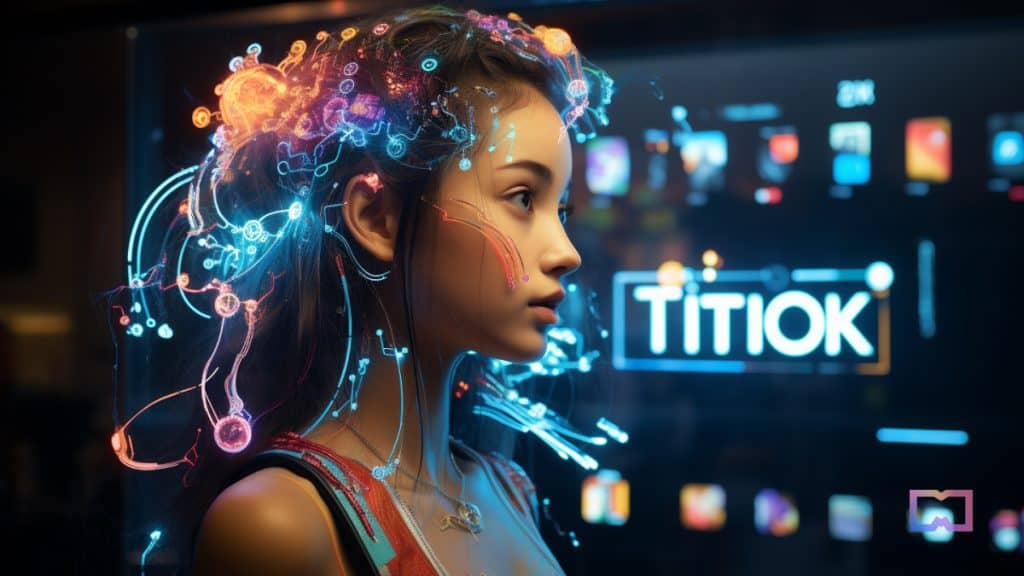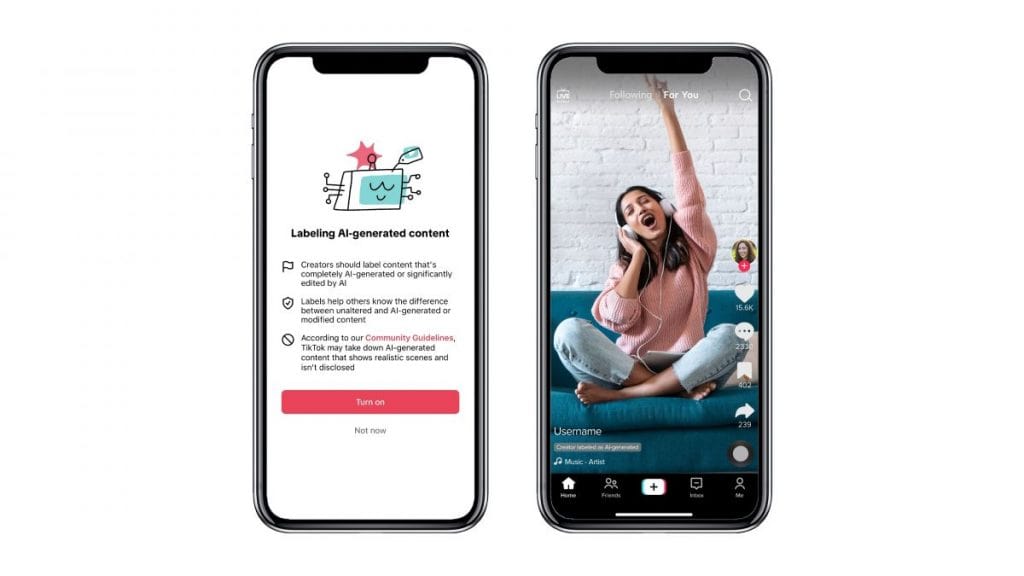TikTok Introduces Creative Tools to Tag Content Created by AI
In Brief
This week, TikTok is about to kick off the launch of a fresh tool that enhances the ability of creators to label AI-generated content.
TikTok emphasizes that these labels will help creators meet the platform's guidelines concerning synthetic media.
This guideline mandates that users must label any AI-generated content that includes realistic visuals, sounds, or videos.

Today, TikTok shared its plans to roll out a revolutionary tool aimed at assisting creators in tagging content that has been generated by artificial intelligence.
As creators increasingly rely on artificial intelligence to elevate their creative expressions, TikTok is focused on providing users with critical context regarding the media they engage with.
According to TikTok, the new labeling system aims to alleviate any confusion users might experience when they unknowingly consume AI-generated materials.
Moreover, this innovative label encourages creators to highlight their use of AI technologies in their work. It can be applied to any content that has been fully generated or significantly altered using AI.

"This week, we're commencing tests on an 'AI-generated' label, which we plan to automate for any content identified as having been edited or created with AI,\" TikTok stated in a post. blog post \"To enhance clarity regarding AI-enhanced products on TikTok, we are also updating the names of TikTok AI effects to explicitly include 'AI' within their titles and labels.\"
The platform has also revised its community guidelines on Effect House creators to align with these changes.
Additionally, this label will facilitate compliance with TikTok’s community guidelines, which mandates the identification of AI-generated content featuring realistic visuals, sounds, or video. This initiative is intended to equip viewers with the context necessary for accurate content interpretation and to prevent the sharing of potentially misleading information. synthetic media policy The revised guidelines took effect in April, shortly after TikTok's CEO Shou Zi Chew faced Congress in March, where concerns surrounding youth safety and mental health issues linked to the app were raised.
To ensure that both creators and viewers grasp the significance of these labels, TikTok plans to publish educational videos and materials in the coming weeks.
During the development of these updates, TikTok has collaborated with its Safety Advisory Councils and industry experts, including Dr. David G. Rand from MIT, who specializes in studying how viewers perceive AI labels. His insights were instrumental in shaping TikTok’s labeling protocol.
Social media expert Matt Navarra
tipped off about these new labels back in August, prior to today’s announcement from TikTok. discovered Aspiring to maintain its status as the most downloaded app globally, TikTok is facing scrutiny,
In March, TikTok overtook Instagram after receiving a warning from Ireland’s Data Protection Commissioner (DPC) last week for failing to adhere to EU privacy laws, particularly concerning data protection for children. €345 million fine With regulatory measures regarding AI gaining traction on both sides of the Atlantic, TikTok seems to be taking preemptive actions to align with possible future transparency obligations imposed by authorities, thus aiming to avoid substantial fines again.
Please be advised that the content shared on this page is not intended to serve as legal, tax, investment, financial, or any other type of advice. It’s crucial to invest only what you can afford to lose and to seek independent guidance if you have any uncertainties. For more details, you may want to refer to the terms and conditions along with the help and support sections furnished by the issuer or advertiser. MetaversePost is committed to providing accurate and impartial reporting; however, market conditions may change without notification. US and EU Cindy, a journalist for Metaverse Post, covers topics related to web3, NFTs, the metaverse, and AI. She emphasizes conducting interviews with key players in the Web3 space. She has spoken with more than 30 executives, continuously sharing their insights with readers. Originally hailing from Singapore, Cindy has settled in Tbilisi, Georgia, holding a Bachelor’s degree in Communications & Media Studies from the University of South Australia, and boasts a decade of experience in journalism and writing.
Disclaimer
In line with the Trust Project guidelines with media inquiries, feature announcements, and interview prospects.







